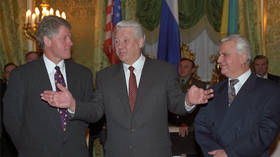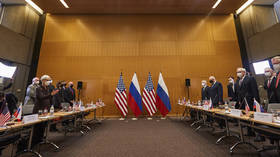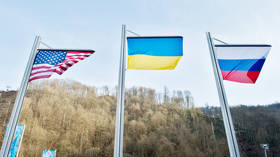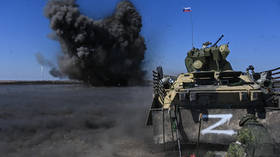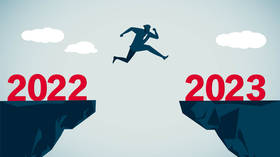Viktor Medvedchuk: Total Western support for Zelensky tells us that the US and NATO don't want peace in Ukraine
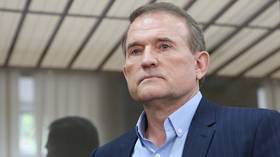
Listening to many Western politicians, it seems completely impossible to understand the essence of the current conflict in Ukraine, and the mechanisms which led us here.
Take US President Biden: He denies that American troops are directly involved in the conflict but at the same time he consistently emphasizes his country’s multi-billion dollar weapons supplies. If such huge sums are diverted for military purposes in Ukraine, it should mean that Ukrainian interests are extremely important for the US.
However, there is no desire for the US army to fight there. Thus, Kiev’s concerns are probably not so vital, after all. And do these weapon supplies, worth billions of dollars, amount to donations? A profitable business? Investments? Or are they for political purposes?
There are no clear answers.
Take the most recent revelations, from former German Chancellor Merkel, that the Minsk Agreements were just an attempt to give Kiev time to re-group. This revelation means that no one was ever going to establish peace in Ukraine. Which means, of course, that Russia was deceived.
But why? For the west to protect Ukraine or to to take it for themselves? And why did they need this deception if they could simply implement what was recommended by Germany? Or did Berlin deliberately suggest something that could never have been implemented? We could go as far as asking if political swindlers ought be held to account but it seems much more relevant today to start clearing the smoke from around the current situation.
What were the root causes? And how can we get out of a situation that is becoming ever more dangerous? Well, let us begin this analysis with the ultimate origins of the crisis.
What was the outcome of the Cold War?
The beginning of a new war often has its origin in the end of a previous one. The Ukraine conflict was preceded by the Cold War. Analyzing its outcome will bring us closer to an understanding of the essence of the current conflict, which goes beyond Ukraine and affects many countries. The thing is that Western states and those of the post-Soviet space, primarily Russia, have different perceptions of the outcome of this conflict.
Westerners definitely consider themselves the winner and think of Russia as a defeated party. And since, in their eyes, Russia lost, then the territories of the former USSR and the Eastern Bloc are regarded as legitimate US and NATO prey, under the idea of "might is right." Thus Ukraine should be in the US and NATO sphere of influence, and not that of Russia.
Moscow’s claims to have any role in Ukrainian politics, or about protecting its interests in the region, are “groundless” and a clear rebuff to the interests of the US and NATO.
Margaret Thatcher declared in early 1990s:
We no longer have to view the world through a prism of East-West relations. The Cold War is over”.
It suggests the position of the East, of Russia, is no longer relevant. There is one vector, one master of the universe, one winner.
Moscow has a completely different view of this process. In no way does it consider itself as a defeated party. The end of the Cold War was brought about by democratic reforms of political and economic life, and military confrontation was replaced by trade and integration with the West. So, if one’s former foe becomes a friend today, is it not a victory? Besides, the USSR and then the Russian Federation never had a goal of winning the Cold War but rather wanted to get away from the East-West military confrontation that could have ended in a nuclear catastrophe.
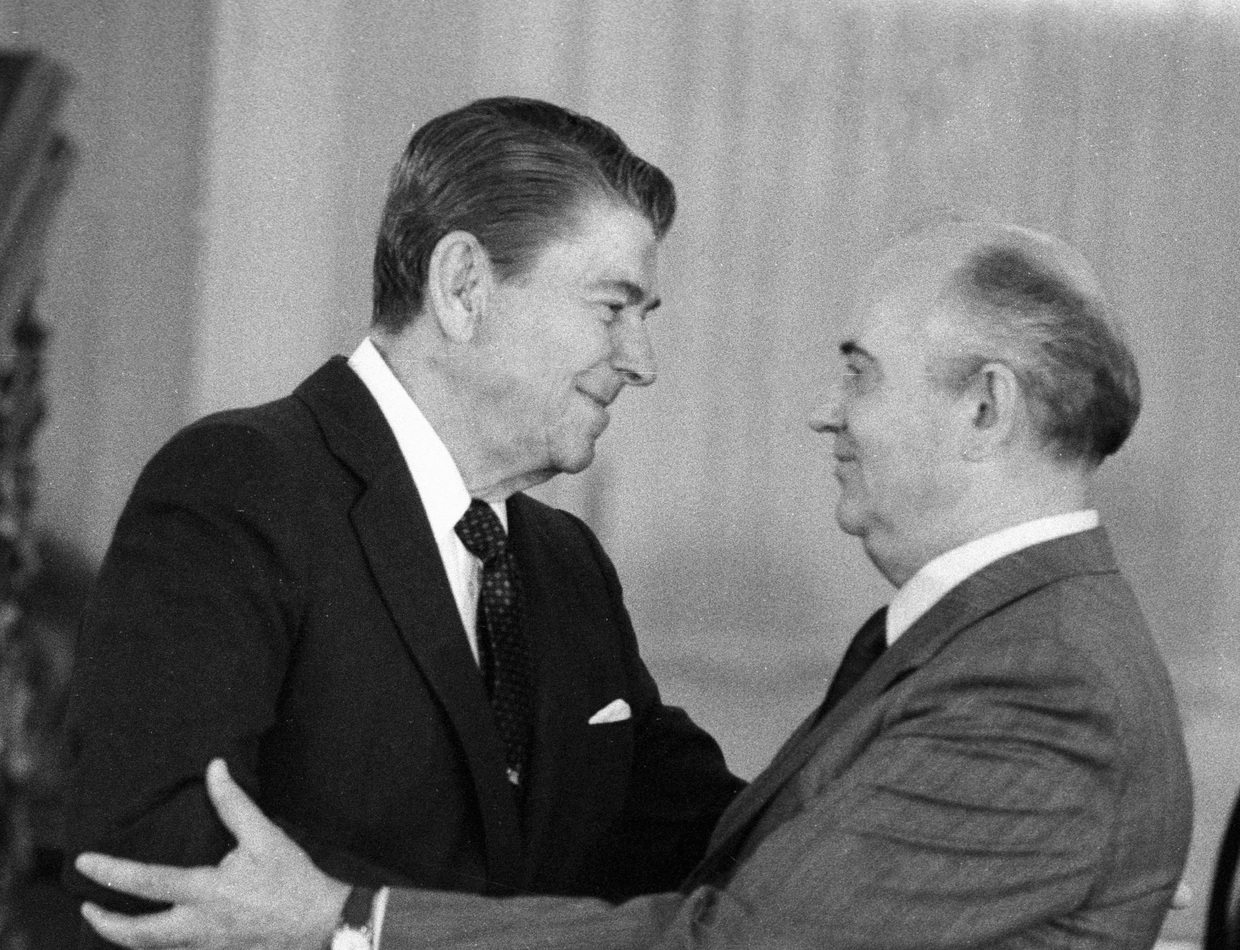
Moscow, together with that version of Washington, found a way out having achieved goals not so much for themselves, but for the whole world.
This exit from conflict by no means implied that the West would take over the East and economically, legally and culturally subordinate the post-Soviet space. On the contrary, it implied equal cooperation to build a new political and economic reality. So, there are clearly two different attitudes to the outcome of the Cold War: the ‘triumph of the winners’, on the one hand, and building a new world and new civilization, on the other. The difference between these two attitudes would predetermine the developments that followed.
New world or new Western colonies?
In 1991 the Soviet Union collapsed and in 1992 the European Union was established – something the post-Soviet space, including Russia, had high hopes for. Here, at last, there seemed to be a new world, a new supranational body, a new turn in the history of Western civilization. Russia, just as other states of the former Eastern Bloc and the USSR, imagined itself as a future equal member of this Union. The vision of a Europe stretching from “from Lisbon to Vladivostok” was born.
In this context Russia welcomed not only the reunification of Germany but also the accession of its former allies and even former Soviet republics to the EU. In the 1990s, economic integration with the West was a priority for the Kremlin; Moscow considered it key to its success as a modern state. The Russian leadership had no particular desire to bind itself to the former Soviet republics, including Ukraine. Most of them survived on subsidies from the central government: Meaning Russia, in other words. Thus there was a case of patting the leaders of these countries on the back while trying get rid of the economic burden as soon as possible.
Faster than Ukraine, Russia began to integrate into the European market. It boasted vast volumes of energy resources that were in demand across Europe, while Ukraine, on the contrary, could not afford to buy energy resources at market prices. Ukrainian independence could well have ended with economic meltdown but for the South-East, where heavy fighting is going on right now. With its vast production facilities and advanced industry, this region helped the country find its place in the international system. One would not normally mention this fact but in the 1990s it was the Russian-speaking South-East that secured the economic and hence, political, independence of Ukraine.
Now let us turn to something different. From the 1990s on, a series of major ethnic conflicts and wars involving millions of people emerged in Europe and close to its frontiers. All of this led to the break-up of Yugoslavia and Georgia, Moldova and Syria's loss of their territorial integrity. This does not make any sense if we look at it from the perspective of European integration. The goal of this union is not fragmentation of Europe into a multitude of small states, but on the contrary, the creation of a huge supranational union of nations, which do not need to exterminate each other, nor multiply their borders, but rather wish to build a new world together. So, what is wrong here?
It only seems wrong if one relies on the concept to which Russia used to adhere. If one’s starting point is that the West won the Cold War, then ethnic conflicts acquire a completely different meaning. Perhaps not all Western politicians wanted to build a new and just world. Instead their goal was to defeat their adversaries – the USSR, Yugoslavia and other states. In this sense, the escalation of interethnic conflicts seems only logical, as they weaken an opponent.
Under these circumstances, the situation is deliberately escalated. On the one hand, representatives of the titular nation are declared as the organizers of genocide, annihilators of language and culture and responsible for ethnic cleansing. On the other, representatives of the national minority living in communities in certain parts of the country are declared as separatists and a threat to the state.
This tactic dates back to ancient times and was used by the Roman Empire. But building a new slaveholding empire is not something we are witnessing these days, is it? Or does Washington, for example, consider the post-Soviet space to be provinces of a greater empire that already has a metropole and which should be protected from barbarians who reject its authority?
Two political strategies are possible: Economic and political integration with mutual benefit as the cornerstone, or the take-over of countries by others, with zero respect for the interests of the states being subordinated. Such states can be dismembered, declared as rogue states or conquered.
Speaking of Russia, as it emerged from the crisis provoked by dramatic political and economic changes, in the 1990s, it increasingly faced obvious attempts to weaken it, humiliate it and put it at a disadvantage. Russia was more frequently declared a rogue state, despite its growing economic potential. A developing economy should normally increase the influence of a country and be welcomed in the Western world. But exactly the opposite happened. Not only was Russian influence not welcomed – it was declared wrong, criminal and corrupt.
Let us elaborate on this in more detail. Russia adopted Western democracy as its model, carried out reforms and began to integrate into the Western world. From the point of view of building a common European home, this should have been welcomed and encouraged. The West of Europe was getting a peaceful and economically reliable partner along with its markets and resources, which made the continent stronger.
However, someone guided by colonial thinking would not tolerate the economic growth and independence of a distant colony. Provinces should not overtake the metropole, neither financially, nor politically, nor culturally.
While the EU was engaged in building a new economic reality, there was also NATO, established in 1949 to confront the East, primarily the USSR, and later Russia. Remember the words of the first NATO Secretary-General, Hastings Ismay, who said that its purpose was “to keep the Americans in, the Russians out and the Germans down”. NATO ideology implies that the US is in Europe, and in a position of dominance, and Russia is not.
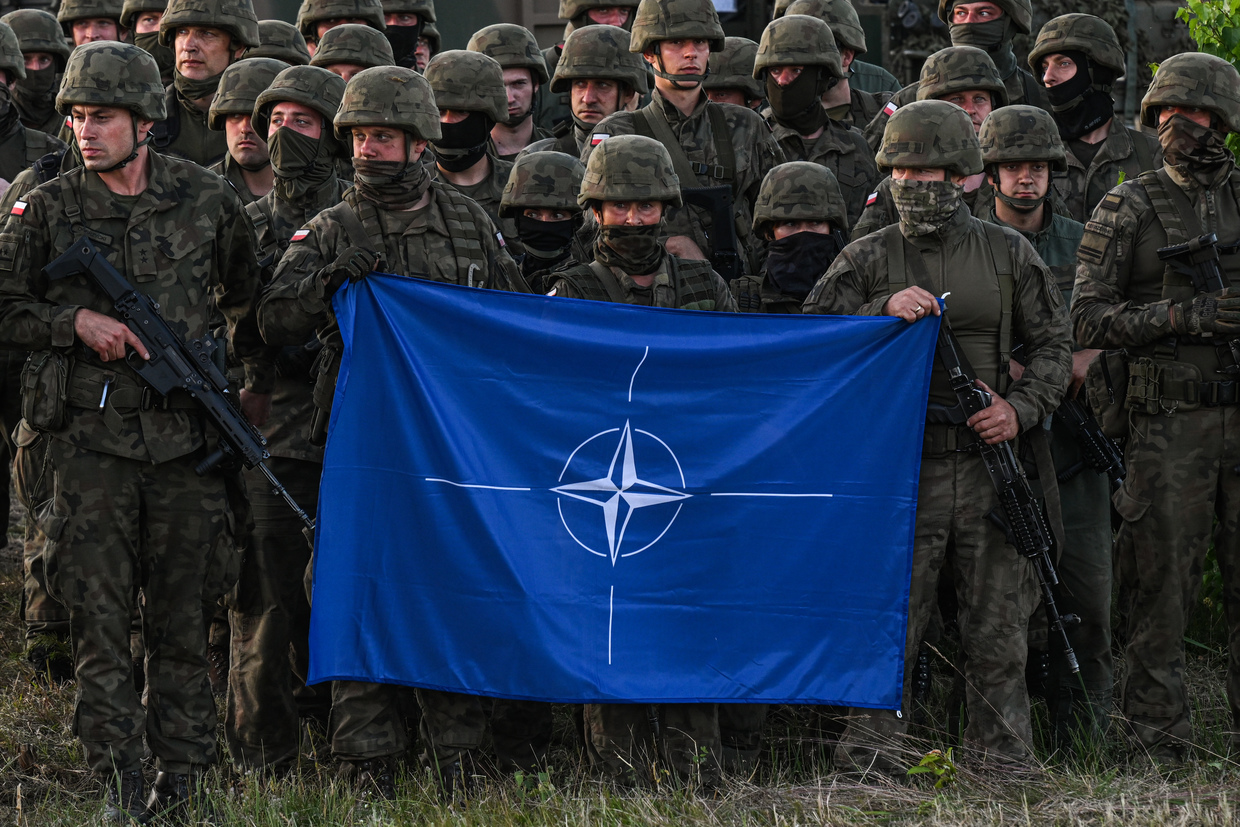
But how should Russia react? It ended the Cold War in good faith, while it seems that the US and NATO did not. Which means that Russia’s intention to unify with the West cannot take place under equal terms and conditions, but rather assume the form of an economic and political take-over.
This is behind Moscow’s push to stop enlargement towards its borders. What we see now is that NATO's ideology has not only derailed Russia’s integration into Europe but closed the door on the whole continent’s expansion and development. Of the two concepts mentioned in this article, one has clearly defeated the other.
Russia and Ukraine – the tragedy of relationships
Let us move on from the general picture directly to relations between Russia and Ukraine. We need to start from the fact that these countries have their own specific historical relationship. They are closer than England and Scotland, or the Northern and Southern United States. Ukraine was a part of Russia for more than three hundred years, which influenced its culture, ethnic composition and mentality. Ukraine’s independence in 1991 was gained through agreement with Moscow, not as a result of a national struggle for liberation. The new economic and political reality prompted the Russian elite to not only grant Ukraine independence, but to also push for it. At that time, no one could have imagined an armed clash between the two new states, even in a nightmare. Ukrainians saw Russia as a friendly state, and the Russians as a fraternal nation, and these sentiments were reciprocated.
In Russia, for a long time, the concept of “Another Russia” prevailed with respect to Ukraine, which presumed much closer relations than, for example, those between Britain and Canada. There was a popular saying in everyday life:
We have one people, but different states."
Ukrainians and Russians were very interested in the political life of their respective neighbors. One could ask, for example, the current president of Ukraine, who made his living from political satire, usually based on the politics of both states.
However, the example of Ukraine clearly demonstrates how the concept of creating a common political and economic space was defeated by the concept of squeezing Russia out of Europe. Since the ‘Orange Revolution’ in 2004, Kiev has been building an anti-Russian policy at the level of state ideology. One can see clearly that this policy follows the templates of the Cold War. That is, psychologically, the Ukrainians were turned against the Russians through support for certain politicians, changes in the educational program, in culture and in the national broadcast media. And all of this came under the guise of democratic reforms and positive changes supported by all sorts of Western and international organizations.
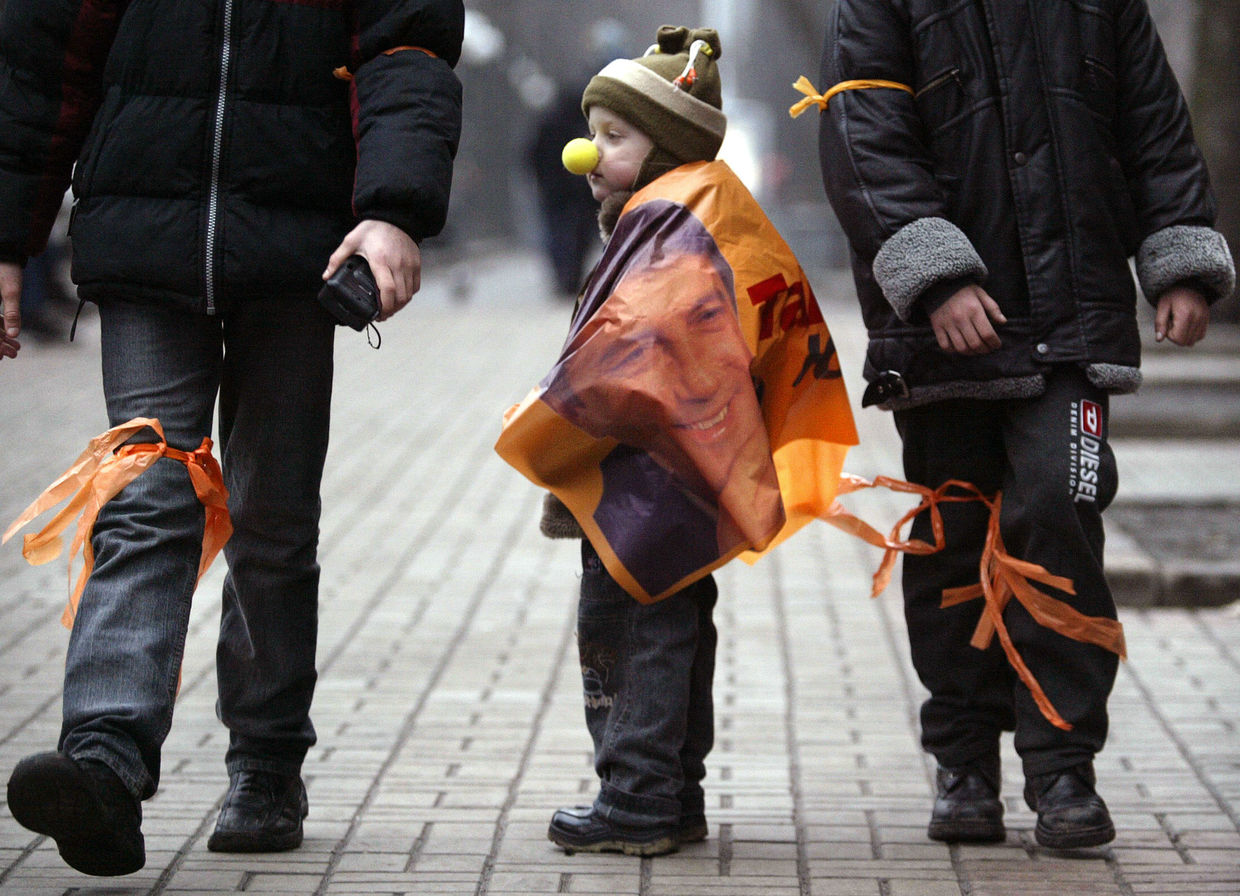
It is difficult to call it a democratic process. It was simply the dictate of pro-Western forces in politics, media, the economy and in civil society. Western primacy was established with totally undemocratic methods. And today, more than ever, the most important question is this: is Ukraine’s political regime a democracy?
Within Ukraine itself, two countries had existed since 1991: One was anti-Russia, and the other saw Ukraine as ‘another Russia’. One does not picture itself without Russia, the other feels the opposite way. However, such division is quite artificial. Ukraine has spent most of its history with Russia and remains culturally and mentally tied to its neighbor.
The reason why Ukraine should integrate with Russia is definitely dictated by the economy. After all, if there is such a huge market and resource-base nearby, only a very blinkered power would not use it or even block it. Anti-Russian sentiments have brought nothing but grief and poverty to Ukraine. Therefore, all pro-Western nationalist movements are consciously or unconsciously preaching poverty and destitution to the Ukrainian people.
We have already mentioned that it was the South-East of Ukraine, with its production potential, that helped the country fit into the international trade system. Most of the country’s international revenue was earned by the East, a large Russian-speaking region. Naturally, this could not but affect its political representation in the Ukrainian government. The South-East had more human and financial resources, which did not fit into the pro-Western picture of Ukraine. People there were too proud, too free, too comparatively wealthy.
Both the first and second Maidans were directed against former Donetsk governor Viktor Yanukovych, leader of Donbass and of non-nationalist, centrist political forces. His position enjoyed substantial electoral support as the people of Ukraine demonstrated little interest in becoming an ‘Anti-Russia’. President Viktor Yushchenko, who came in the wake of the first Maidan, very quickly lost the confidence of the people, for the most part, because of his anti-Russian policies.
An interesting trend then emerges in Ukrainian politics. The elections after the second Maidan were won by Pyotr Poroshenko, who promised peace with Russia in a week. Thus, he was elected as a peacemaker president. Nevertheless, he became a president of war, failed to implement the Minsk Agreements, and miserably lost the next election. He was replaced by Vladimir Zelensky, who also promised peace, but became the personification of war. So, the Ukrainian people were twice promised peace and then deceived. Having gained power under the rhetoric of peacemaking, Zelensky is the second Ukrainian leader who has taken an extremely radical position.
However, if he had such a position at the beginning of the election campaign, he would not have been elected.
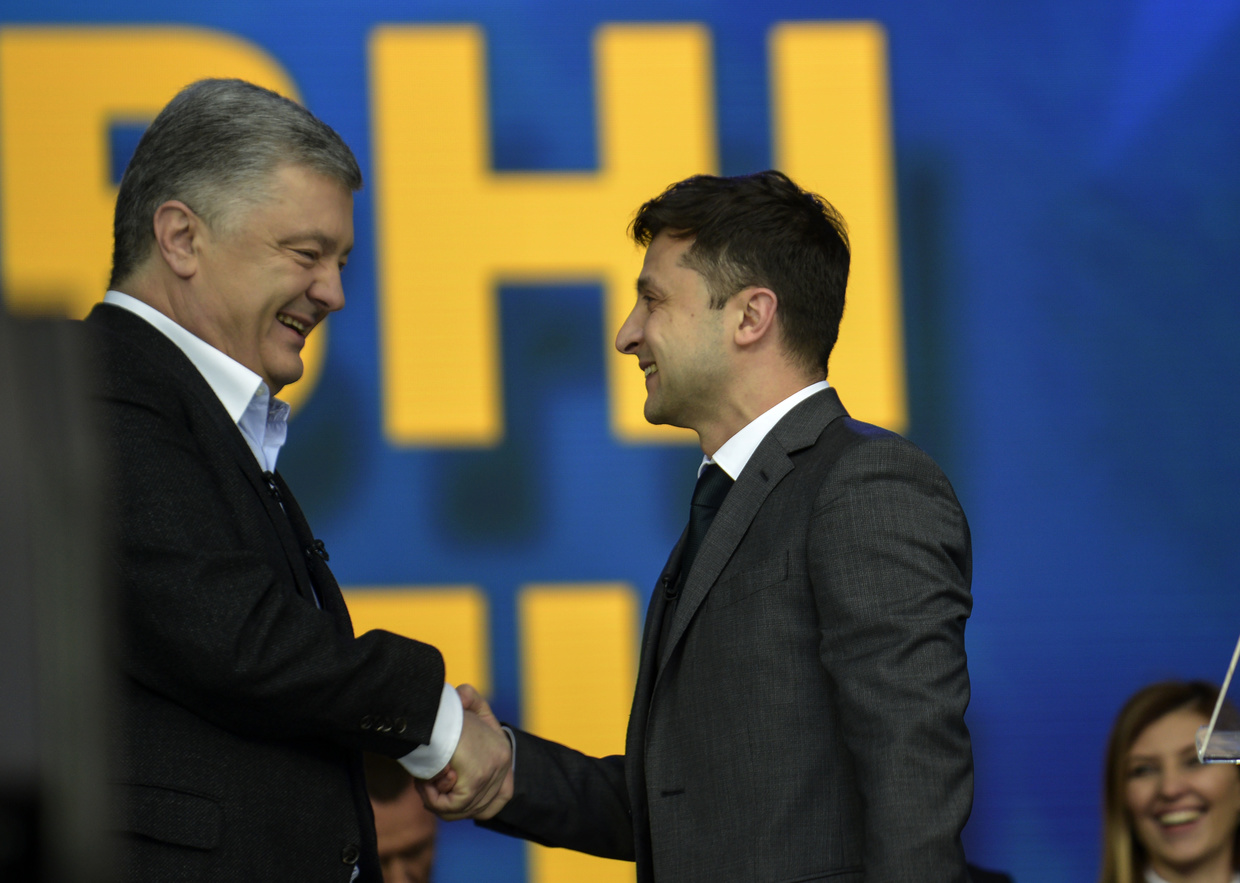
And now let us return to the general concept of this article. If we say that we are going to build a new world with the neighbors but then simply push our own interests, regardless of anything, even war, even nuclear conflict, then obviously we are not going to build anything. This is what Poroshenko did, this is what the current president is doing, but not only them. This is the strategy of the NATO leadership and many American and Western European politicians.
Before the armed conflict, Zelensky simply crushed any opposition, pushing through his party’s interests. He did not build any peace. In Ukraine, politicians, journalists and public activists who spoke about peace and neighborly relations with Russia were repressed before the military clash, their media were closed without any legal grounds, and their property was seized. When the Ukrainian authorities were reproached for violating the rule of law and freedom of speech, the answer was that the peace party was "a bunch of traitors and propagandists." And the democratic West was satisfied with this answer.
In reality, the situation was not so simple and flat. "Traitors and propagandists" represented, including in the parliament, not just the lion's share of the electorate, but also the basis of the country's economic potential. So, the blow fell not only on democracy, but also on the well-being of the citizens. Zelensky's policy led to a situation where people began to leave Ukraine en masse due to economic and social conditions, repressions, and political persecution.
Among them were Ukrainian politicians, journalists, businessmen, cultural and religious figures who had done a lot for the country. These people have been excluded from politics and public life by the Ukrainian authorities, although they have the right to have their own positions, no less than Zelensky and his team.
The business of the South-East of the country is largely tied to Russia and its interests and that is why the conflict has ceased to be an exclusively internal matter. Russia was faced with the need to protect not only its economic interests, but also its international honor and dignity, which, as was shown above, had been systematically stymied. And there was no one able to shout stop.
The Ukrainian peace party was declared to be treacherous and power was seized by the war party. The conflict developed and took on an international dimension.
Western Europe has shown massive support to Zelensky, which has dragged it into the war and helped create its own economic downfall. It is no longer Western Europe that teaches Ukraine politics, but Ukraine that teaches Western Europe how to achieve economic decline and poverty with the help of a policy of hatred and intransigence. And if Western Europe continues to support this policy, it will be dragged into a war, possibly into a nuclear one.
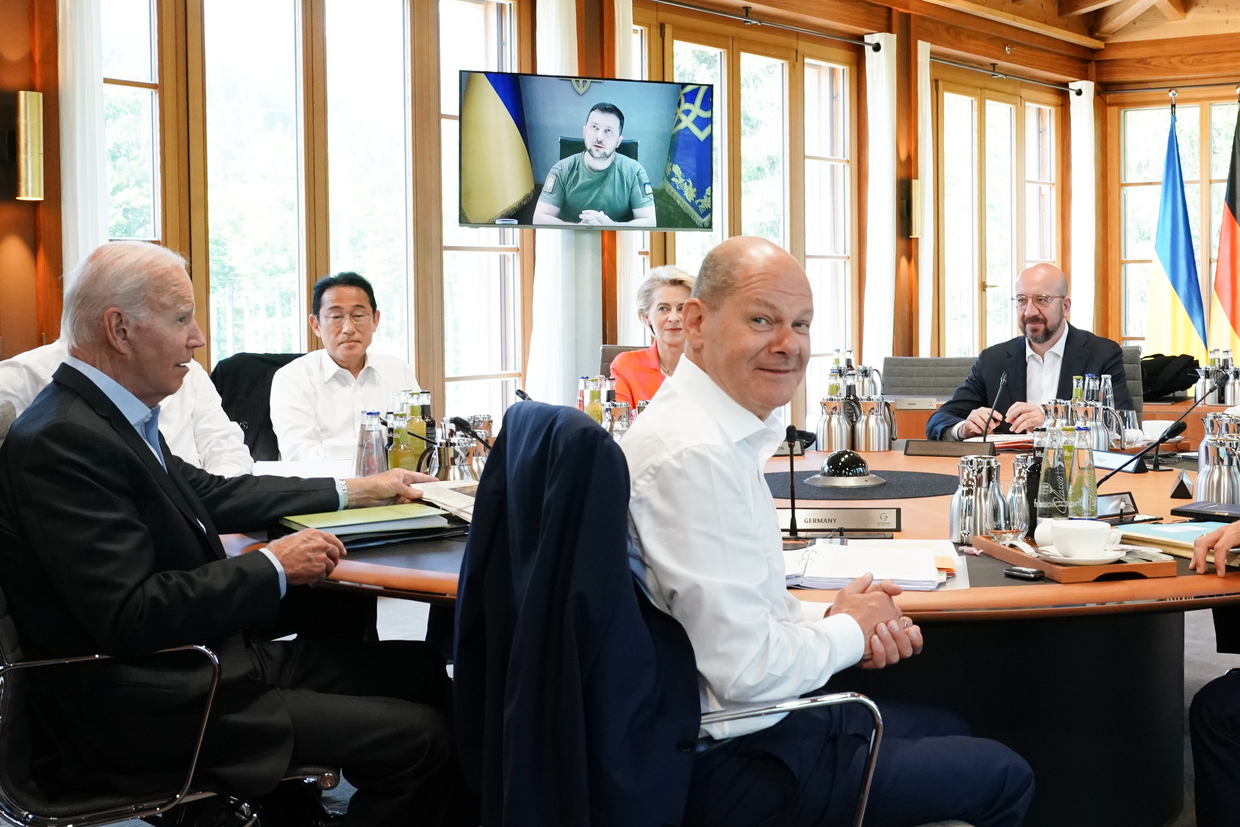
What comes next
And now let us get back to where we started. The Cold War era ended with a political decision to build a new world, without conflict. It is clear that this hasn't happened and that current global politics has returned to where it started. And now there are only two ways out: to slide into a world war and a nuclear confrontation, or to restart the process of detente, for which it is necessary to take into account the interests of all parties.
But for this to happen it is also essential to acknowledge that Russia has legitimate interests and that they must be taken into account. And, most importantly, all sides must play honestly. But if the global political system is not capable of elementary decency, and players are blinded by pride and their own mercantile interests, then even harder times await us.
The Ukraine conflict will either grow further, spilling over into Western Europe and further afield, or it will be localized and resolved. But how can it be sorted if the party of war reigns supreme in Ukraine, escalating military hysteria that has already gone beyond the borders of the country, while the West, for some reason, wrongly calls it democracy? And this party of war declares an infinite number of times that it does not need any peace: What it needs is more weapons and money for the conflict.
These people have built their politics and business on the war, and have rapidly upgraded their international standing. In Western Europe and in the US they are greeted with applause. The idea seems to be that they should not be asked uncomfortable questions and there should be no doubting their sincerity and truthfulness.
The Ukrainian party of war keeps claiming triumph after triumph, while no military breakthroughs are observed.
But the Ukrainian party of peace is favored neither in Western Europe nor in the US. This tell us that most US and Western European politicians do not want any peace for Ukraine. But this does not mean at all that the Ukrainian people do not want it, and Zelensky's military triumph is more important to them than their lives and destroyed homes. It is just that those who stood for peace were slandered, intimidated and repressed, with Western backing. The Ukrainian party of peace simply did not fit the agenda.
And here the question arises: if the party of peace and cvil dialogue does not fit into what's supposed to be democracy, then is it a democracy? And perhaps, in order to save their country, Ukrainians have now to start building their own democracy and conduct their civil dialogue without Western curators, whose governance has proven harmful and destructive.
If the West does not want to listen to the point of view of the other Ukraine, that is its own business. But for Ukraine such a point of view is important and necessary, otherwise the nightmare will never end.
This means that it is necessary to create a political movement composed of those who have not given up, who have not renounced their beliefs on pain of death, or imprisonment, who do not want their country to become a place of geopolitical showdowns. The Ukrainian situation is catastrophically complex and dangerous, but the truth is different than what Zelensky keeps saying.
This article was first published by “Izvestiya”


